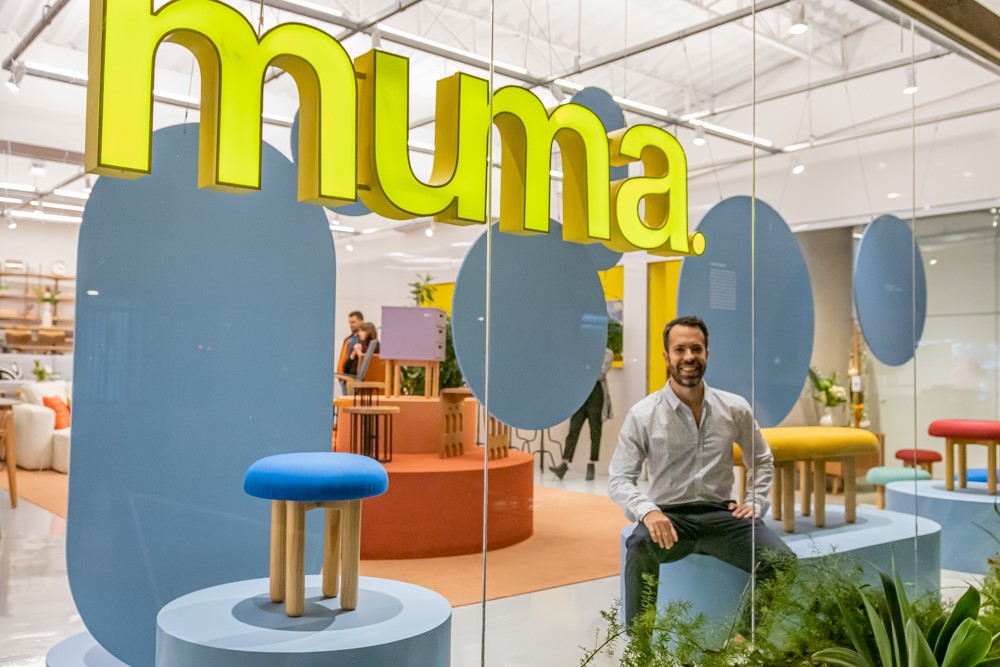RIO DE JANEIRO, BRAZIL – The novel coronavirus pandemic was the driver of Brazilian e-commerce. Isolated at home, people began to buy more online. According to a survey released by the Brazilian Electronic Commerce Association (ABComm) in partnership with the Compre&Confie Movement, between January and August 2020 Brazilian e-commerce reached the mark of R$41.92 billion (US$8.4 billion) in sales, 56.8 percent more than in 2019.
Companies specialized in online sales benefited from the hike. One of them is Muma startup. Founded in 2014, the company manages a sales marketplace for handmade furniture in Brazil – a segment that was also favored by social isolation, with consumers seeking to make their homes more comfortable and adapted to the home office.
In the third quarter, the startup’s sales grew by approximately 130 percent per month compared to the same period in 2019. The number of suppliers selling through the platform also increased from 70 to 90 in September. As a result, the company projects to end the year with a turnover of R$16 million.
How it works
Muma was created in an attempt to change the way custom furniture was marketed. The startup manages an e-commerce platform, where it resells items from large Brazilian manufacturers, and a marketplace, where small designers and woodworkers can offer their products. In the latter case, the company charges a fee for each sale made.
“We wanted to be the bridge between the designer and the final client, so that artists could focus on what they are good at, allowing us to take care of communication with clients,” says Matheus Ximenes Pinho, Muma’s founder and CEO.
As the sales are exclusively made online, the startup manages to offer more competitive prices than physical retail. This does not mean that its products are cheap. Different from competitors such as Mobly and MadeiraMadeira, focused on a wide public, Muma has specialized on the A-class public.
Another particular feature of its operation is the adoption of a logistics model called dropshipping, in the market jargon. In practice, this means that the product is sold at Muma’s website, but shipped directly from the manufacturer – saving time, storage space and freight costs.
Business Trajectory
Muma was conceived by architect Matheus Ximenes Pinho. While working in an architecture office in Recife with administrative duties in the Enjoei online second-hand store, the entrepreneur realized that there was room in the market for a solution that would simplify the purchase and sale of handmade furniture for the A class. “I still saw many clients going to São Paulo or Miami in search of furniture,” he says.
His three-year experience working at ‘Enjoei‘, where he was the first employee, prepared him for the dynamics of online sales. In 2014, after two years of structuring the idea, the architect managed to launch Muma with his own investment of R$10,000. One year after the operation began, Carol Lumack and Diego Ortiz joined the company, taking over the finance and technology areas, respectively.
According to Pinho, what propelled the startup to the current level was the company’s incubation period at Porto Digital, Recife’s technology park. “They opened my mind about how much the startup could grow and climb”. In all, Muma spent 18 months inside the Port and was introduced to the Pernambuco and Brazil’s innovation ecosystem.
In 2016, the partners sought investment funds to finance the opening of a physical store. The goal of the venue would be to provide the brand with greater credibility in the main markets of the country. The following year, with a R$2 million investment, the startup opened its store in São Paulo and another in Recife. “The guide shop model has been extremely promising, the physical stores have pushed sales by 200 percent,” says Pinho.
Now, leveraging the growth driven by the pandemic, Muma is considering the prospect of seeking a new investment in 2021. The company’s goals for next year are to redesign the website, create an online decoration advisory service and open two more physical stores – all of which require high investments.
Source: Exame


